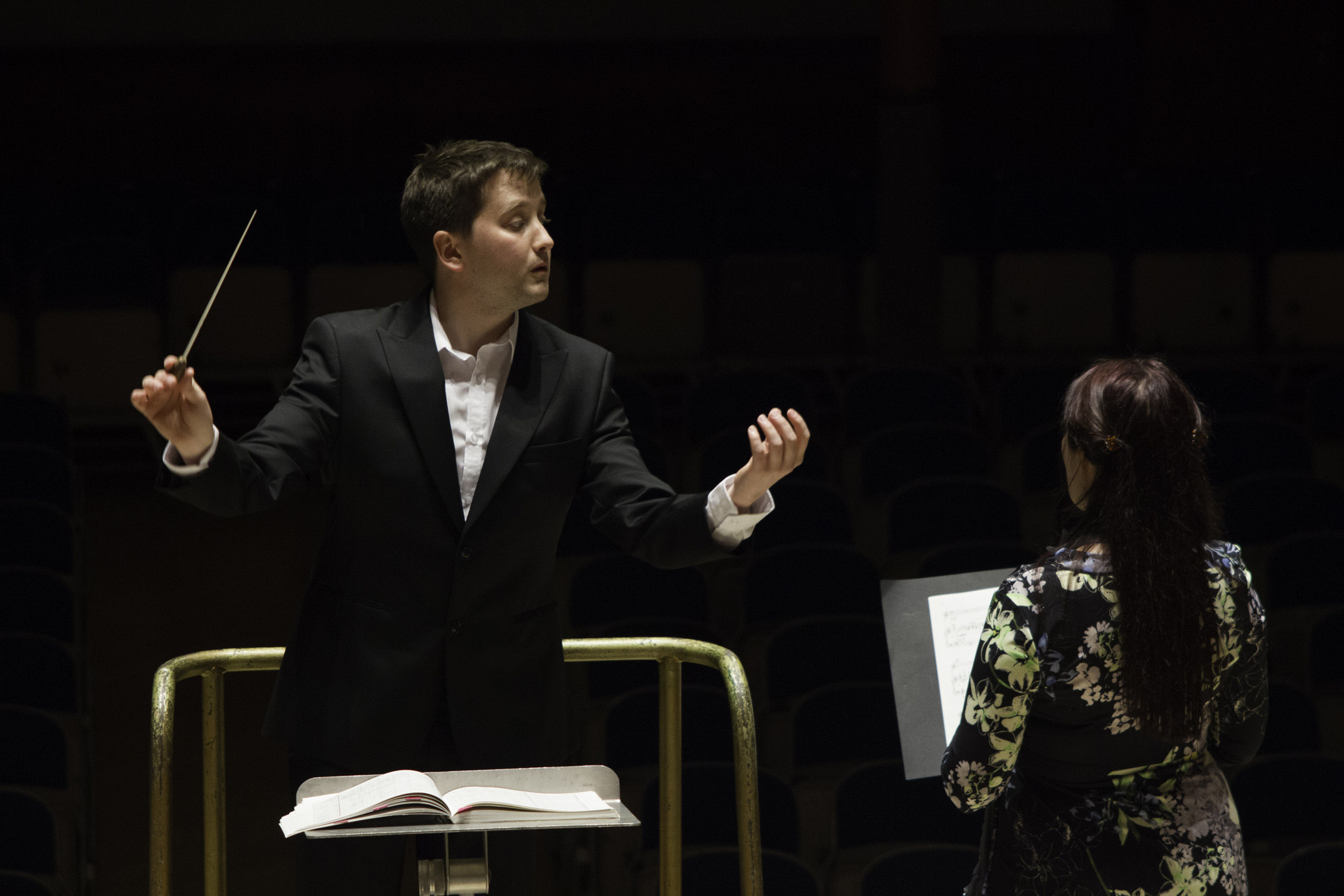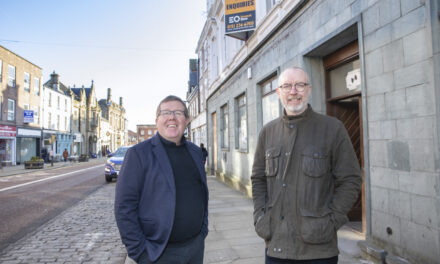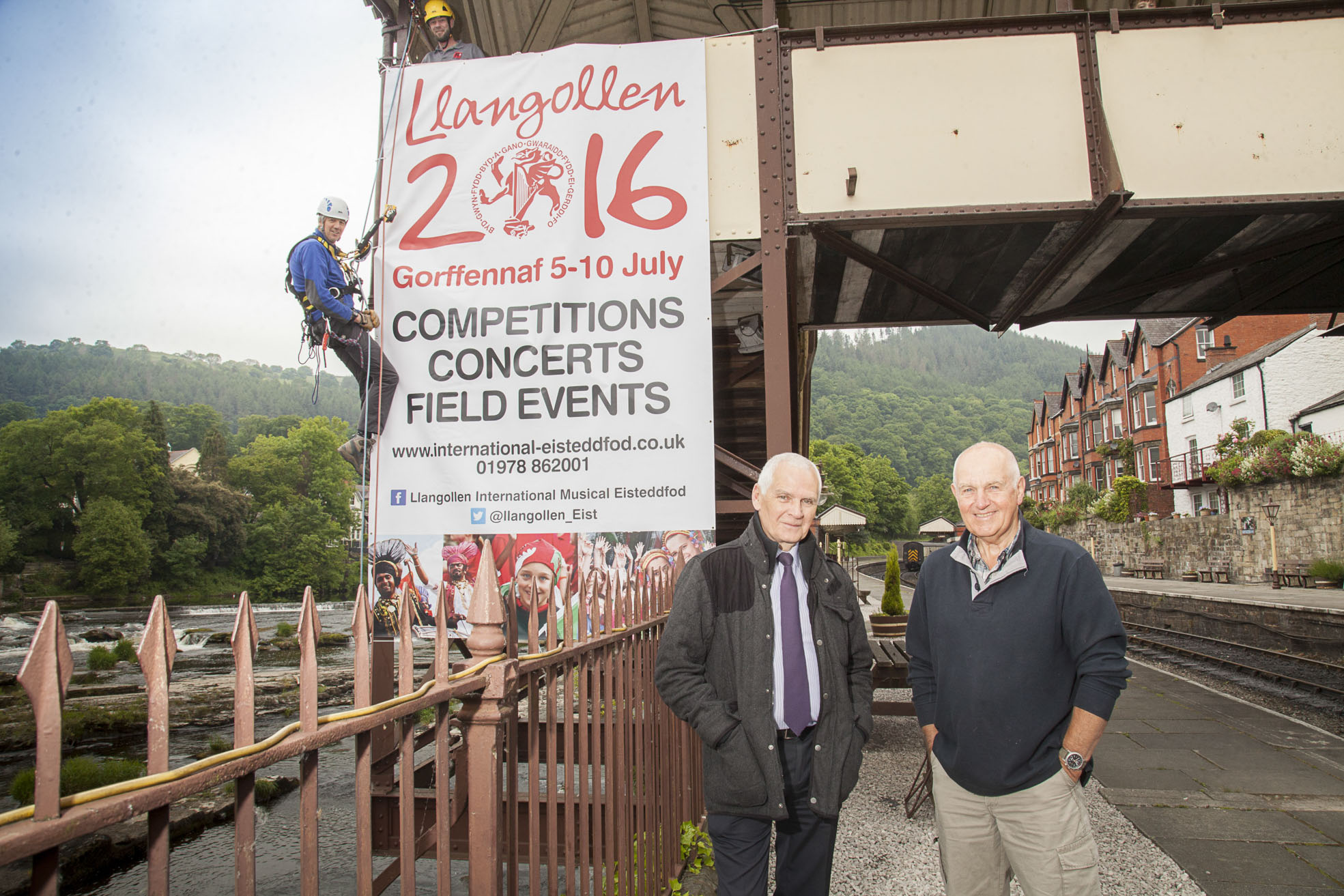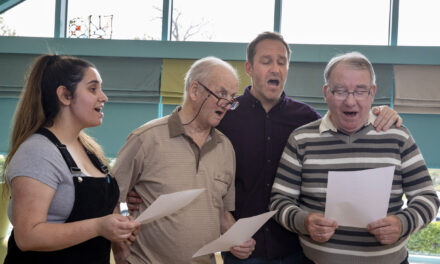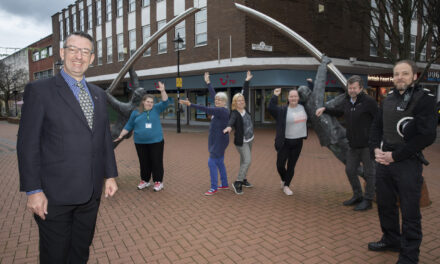A young orchestra conductor has spoken movingly about how he overcame childhood deafness to forge a successful career in music.
Robert Guy, 27, from Wrexham, was not able to hear a note when his grandmother started teaching him to play the piano at the age of three.
Now fully recovered he is making his name as conductor and co-founder of the North East Wales Sinfonia which he set up with his brother Jonathan, 25, four years ago.
The brothers, who both also teach music, have made it their mission to act as mentors and make classical music more accessible to everyone in North East Wales.
Already their orchestra has performed at the North Wales International Music Festival in St Asaph, collaborating with Karl Jenkins and royal composer Professor Paul Mealor, who wrote the music for the wedding of the Duke and Duchess of Cambridge.
The Sinfonia recently secured a £5,000 grant from the Arts Council of Wales to put on a series of free lunch time concerts at Oriel Wrexham and Galeri 3B, which means they can pay their pool of around 40 musicians for musical performances.
But the brothers are most excited at the moment about a special evening performance they are preparing for at St Giles’ Church in Wrexham on March 7.
It will feature music from Carl Maria von Weber’s Der Freischutz Overture, the Peer Gynt Suite by Edvard Grieg, and one of the brother’s favourite piece, Pyotr Ilyich Tchaikovsky’s Symphony No 4 op. 36.
The orchestra has around 20 core members who hail from North Wales, and a further pool of about 20 more musicians who travel in from the rest of the country, all are aged between 18 and 28.
They rehearse at Trinity Presbyterian church in Wrexham, where the Cantorian Rhos choir which Robert also conducts, also perform.
What audiences won’t have known until now, is that when Robert’s grandmother Doreen Monslow first started teaching him to play at her home in Llay, he was severly deaf.
He said: “It wasn’t spotted until I was about three, but it turns out the tubes in my ears were closed up so they weren’t letting the sound through. The doctors said I was about 70% deaf.
“My grandmother taught all of her grandchildren to play, she was a piano teacher, so it was normal to sit down and do that. She didn’t treat me any differently.
“I would use the sight of the keys to play, and it sounds strange, but I could sort of feel the music through my bones. When I started learning violin, because you put your chin on the instrument, I could feel the vibrations of the music that way.
“I had grommets put in when I was five, to help open up the tubes, and I remember distinctly the day everyone realised how bad my hearing had been, because there was a truck near our house and the engine was making a lot of noise, and I was crying because it was so loud.
“Then later I went outside and said: ‘Mum I can hear the birds sing!’ I’d never heard that before. It wasn’t really until then that people realised how little I’d been able to hear.”
Over the years Robert’s hearing slowly improved as he grew, and the tubes in his ears opened up. And gradually, his natural musical talent meant he caught up with his contemporaries fast.
He added: “I’ve always had an obsession with sound because it wasn’t something that was there at the beginning for me.
“At school I always sat at the front of class because I would lip read, that’s how I got by.
“My hearing’s fine now, but I’m a very good lip reader which is interesting if someone whispers something in the orchestra that they think is out of my earshot, and I know what they’ve said.”
Grandmother Doreen, 86, retired from teaching last year as her eyesight began to fail. She taught both Robert and Jonathan to play piano from the age of three.
She said: “They were both very good. Jonathan was maybe that little bit ahead when they were very young, but then evened out when they got older.
“You could hardly notice any problem with Robert was when he was at the piano, he just got on with it and did whatever he was asked. They are both very dedicated and I’m so proud of them both – they’re brilliant.”
It wasn’t until he was aged 15 that doctors said Robert’s hearing had returned to normal, and age 16 that he was finally discharged from regular appointments at the Wrexham Maelor hospital.
After the University of Manchester, Robert went on to study at the Royal Northern College of Music in Manchester.
Younger brother Jonathan, who also teaches instrumental music at schools across Flintshire says: “We were playing in these other orchestras in Cardiff and Manchester, and thinking why isn’t there something like this at home?
“We wanted to set something up in North East Wales because we believe it is important to have high quality professional music making, which inspires young people and enriches the cultural life of the area. Manchester has the Hallé, so why can’t North East Wales have the NEW Sinfonia.”
“It’s brilliant to be in business with my brother, because we are so close, there is absolute honesty and trust which means we have a lot of creative freedom.”
Tickets are priced £12 (adult) £8 (concessions), or £3 (student or child), are available from the Tourist Information Centre in Wrexham town centre, or direct from the orchestra by emailing: newsinfonia@gmail.com Doors open 7.30pm. For more information visit: http://www.newsinfonia.org.uk/

